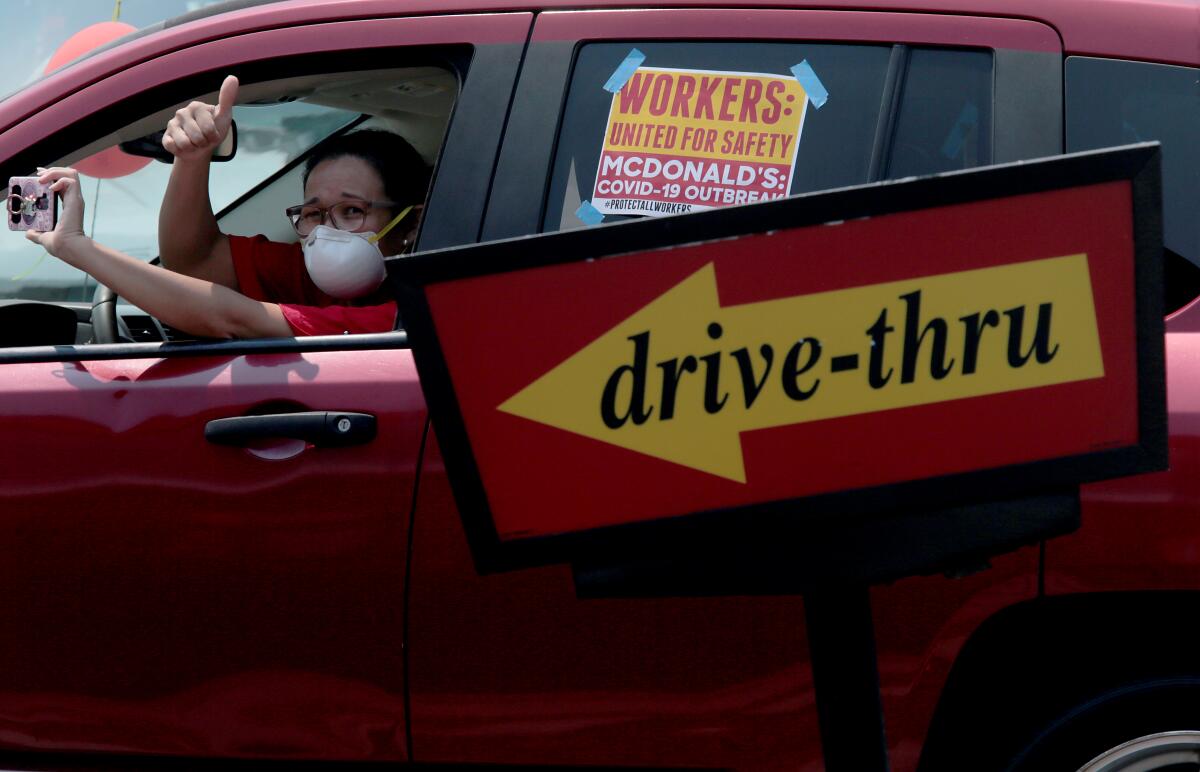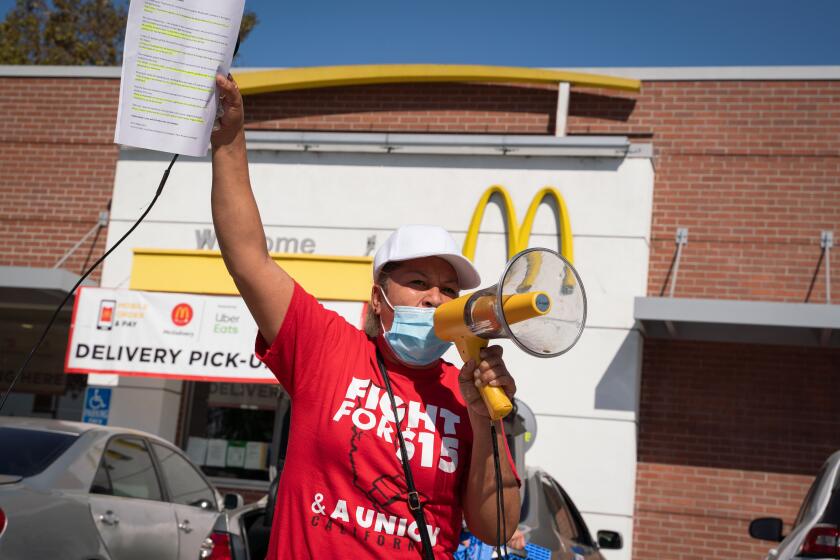Legislation seeks to upgrade safety standards for fast-food workers amid COVID-19

- Share via
A bill introduced in the California State Assembly on Thursday excoriates the fast-food industry for its response to the pandemic, contending that chains have “routinely flouted” measures intended to protect the state’s 500,000 fast-food workers — and their millions of customers — from COVID-19.
Introduced by Assemblywoman Lorena Gonzalez (D-San Diego), the legislation cites complaints filed by workers with county public health departments that accuse the industry of failing to provide adequate protective gear and sick pay, requiring employees to work while ill and refusing to inform them when coworkers are infected with the coronavirus.
With the pandemic, “a disempowered work force faces a crisis in an industry with a poor history of compliance with workplace health and safety regulations,” the legislation reads.
The FAST Recovery Act, which stands for Fast Food Accountability and Standards, contains withering criticism of the industry’s response to the pandemic but doesn’t detail what new regulations it seeks to impose.
A spokeswoman for the California Restaurant Assn. said she hadn’t seen the bill and thus couldn’t comment.
Gonzalez said regulatory specifics will be worked out after hearings in March. She said she hopes the measure will boost the state’s enforcement of health and workplace protection laws and give workers a voice over workplace safety issues.
Across the country, fast-food restaurants have struggled to maintain the health and safety of front-line workers who face conditions that frequently put themselves and their families at risk of COVID-19.
The measure would be the first to impose specific workplace rules covering the burgeoning fast-food industry, she said, and is modeled on a law she introduced in 2016 to regulate the janitorial industry in response to allegations of widespread sexual assault by supervisors.
The bill doesn’t refer to any fast-food companies by name. Gonzalez said it is aimed at changing industrywide standards for workplace safety.
“We want to empower workers to have some sort of voice on the job,” Gonzalez said.
The industry has been “rife with abuse, low pay, few benefits, and minimal job security, with California workers subject to high rates of employment violations, including wage theft, sexual harassment and discrimination, as well as heightened health and safety risks,” the measure states.
Gonzalez said she wrote the bill with input from the Service Employees International Union, which has sought to unionize workers at McDonald’s, the nation’s dominant fast-food chain, and has organized strikes over safety issues.
A report by the Los Angeles Times and Reveal from the Center for Investigative Reporting cited workers’ complaints filed with federal, state and county health and safety regulators in 37 states claiming that McDonald’s employees had been pressured to work in close quarters alongside ill co-workers or come to work when they were ill themselves.
Even when cases of COVID-19 flared among workers, outlets remained open for business, according to the complaints, which were filed from March through Dec. 13. Some of the complaints date back to the chaotic early weeks of the pandemic, but many were filed in the late summer or fall, after stores had time to solidify safety protocols.
Almost all of the complaints were closed without a workplace inspection, records show.
McDonald’s has disputed COVID-19 safety complaints, saying that the vast majority of its outlets are clean and safe and that the company has gone to great lengths to enforce health and safety rules.
A spokeswoman for SEIU said that on Friday the group would lead another series of strikes around the state, this time targeting Carl’s Jr. and Burger King outlets as well as McDonald’s over COVID-19 safety issues. Gonzalez said she intended to show up to support walkouts in Sacramento.
More to Read
Sign up for Essential California
The most important California stories and recommendations in your inbox every morning.
You may occasionally receive promotional content from the Los Angeles Times.











